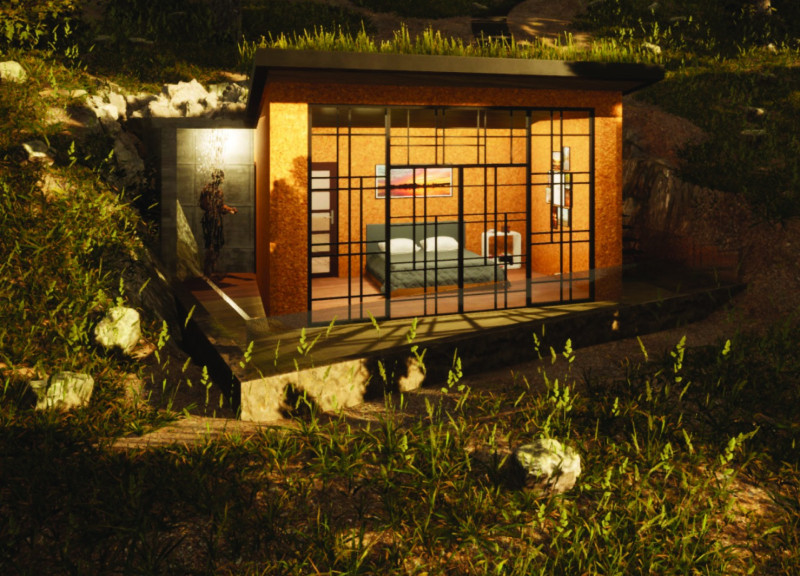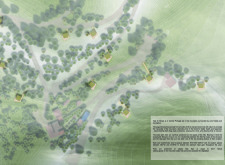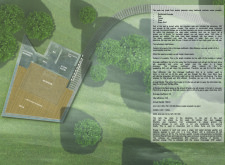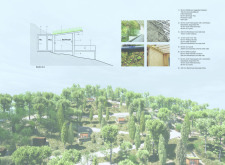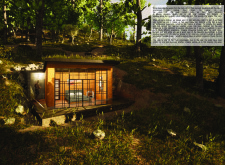5 key facts about this project
Vale de Moses is an architectural project located in Central Portugal, designed as a holistic yoga retreat that engages deeply with its natural environment. The project comprises a series of individual living pods that are arranged along the contours of the site, allowing guests to enjoy panoramic views of the mountainous landscape. This retreat represents a fusion of architecture with wellness practices, focusing on harmony, sustainability, and self-sufficiency.
Each pod serves multiple functions, providing private accommodations for guests while integrating communal spaces that encourage social interaction among visitors. The architectural design prioritizes natural materials and eco-friendly practices, intending to create a peaceful retreat that promotes relaxation and reflection.
Sustainable Design Principles
A defining characteristic of the Vale de Moses project is its commitment to sustainability. The architectural design employs renewable energy sources, including solar panels installed on the rooftops of the pods, contributing to the retreat’s low-carbon footprint. Rainwater harvesting systems and greywater recycling are also part of the overall infrastructure, ensuring water conservation throughout the facility.
The project utilizes locally sourced materials, primarily reinforced concrete, timber, cork, and glass, to create a cohesive design that respects the ecological context. The use of cork and timber for insulation not only enhances the aesthetic appeal but also provides effective soundproofing, crucial for a retreat focused on quiet reflection and relaxation.
Integration with Nature
Vale de Moses exhibits a strong integration with its natural surroundings. The layout of the structures is designed to minimize impact on the landscape while maximizing privacy for guests. Outdoor spaces, including decks and showers, are seamlessly incorporated into the design, allowing inhabitants to connect with the environment. The orientation of the pods has been carefully considered to align with the sun’s path, optimizing natural light and promoting energy efficiency.
The retreat also includes open communal areas designed for yoga sessions, meditation, and group activities. These spaces are intrinsically connected to the landscape, encouraging an immersive experience where guests can appreciate the scenic beauty of the surrounding pine forests and eucalyptus trees.
Distinctive Architectural Features
A notable aspect of Vale de Moses is its unique architectural language that balances functionality with aesthetic simplicity. Each pod is equipped with a private entrance, and the interiors are designed to offer comfortable living while providing a minimalist environment conducive to mindfulness.
The design embraces transparency through extensive use of glass, facilitating a visual dialogue between indoor and outdoor spaces. This feature is paramount in creating a sense of openness and facilitating natural ventilation, which is a critical element of the design strategy.
The presence of green roofs significantly contributes to the sustainability aspect of the project, aiding in thermal insulation and supporting local biodiversity. The meticulous attention to landscape preservation ensures that the architecture complements rather than dominates the natural habitat.
Explore the architectural plans, sections, and designs of the Vale de Moses project for an in-depth understanding of its framework and spatial organization. Delve into the architectural ideas that drive its design to appreciate the careful thought put into enhancing the overall experience at this yoga retreat.


